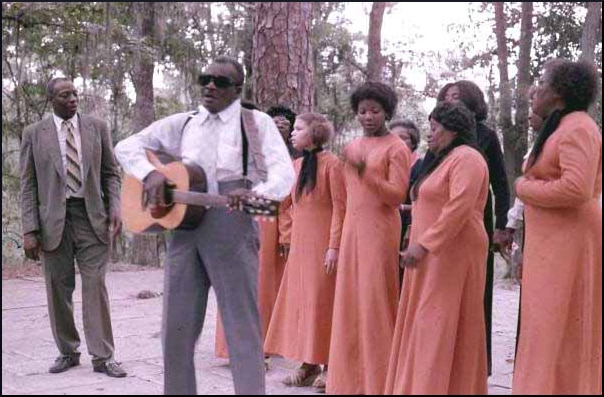
Historically, for black Americans, church has been a place of refuge. In the words of
Frederick H. Lowe, “racially motivated slights, the tense anticipation of slights, or worse, the possibility of violent physical assault” were less likely to occur there than in other locales. Even so, history has recorded heinous assaults on consecrated ground. To a greater extent in the past, but even now, to be black in America requires a hyper-vigilant state of awareness that can be exhausting to maintain.
Church was (and still is) the source of emotional healing. The tradition of the after-service dinner has apparently been so pervasive that some observers attribute the high obesity rate among congregations to the communal meals alone. “Soul food” is comfort food, and does account for a certain amount of the obesity that is disproportionately present in the African-American community.
Why do people seek out comfort food? Because of psychological tension and uncertainty. Stress comes from “living in poverty and residing in neighborhoods with inadequate housing and high crime rates.” However, people in the lower economic stratum are not only ones affected. James S. Jackson, of the University of Michigan’s Institute for Social Research, explains that “even middle-class or wealthy blacks suffer from daily micro-aggressions — subtle or not so subtle racist insults.”
Why food is good
In an unstable, chaotic environment, women are probably less tempted than men to do things that would put them in jail, especially when there are children to take care of. So, a certain number of women avoid drug use for that reason. Even though alcohol is legal, a type of person might shun it, through dreading to follow in the footsteps of an abusive drunken relative. Many poor people are so busy working and doing family care, they don’t have the luxury of relieving their stress through affairs.
Overeating has a lot to recommend it. As vices go, it has advantages. Overeating rarely creates dramatically memorable scenes involving fisticuffs, nudity, flinging drinks in people’s faces, or standing on edges of rooftops. It will probably not lead to arrest, divorce, or eternal damnation. The self-inflicted injury will be subtle and more corrosive than explosive. Obtaining authorization for medical help is arduous, but self-medicating with ice cream is a widely available option.
And food, especially crummy food, is relatively cheap, compared to a lot of other commodities. This is why some reformers want to ban BOGO sales, otherwise known as “buy one, get one” or “two for the price of one” promotions. Because, why make crummy food even cheaper? And then other voices chime in, protesting the nanny state, and asking why people should be patronized and bossed around just because they have less money than the bosses and patrons.
At any rate, in the United States, almost 40 percent of black men and close to 60 percent of black women are obese. This is the perfect moment to recall the inspired movement started by Nurse Bowick in Rochester, NY. It is also an apt moment to appreciate Afro-American men who, as Lowe and many others have noted, are very accepting of ample women’s figures, creating a culture where “thick” is not an insult, but a non-judgmental descriptor.
Reactions?
Source: “Eat, Pray, Gain — Black Church Meals May Serve Fellowship With Obesity,” NewAmericaMedia.org, 02/09/16
Photo credit: State Library and Archives of Florida on Visualhunt/No known copyright restrictions

 FAQs and Media Requests:
FAQs and Media Requests: 











